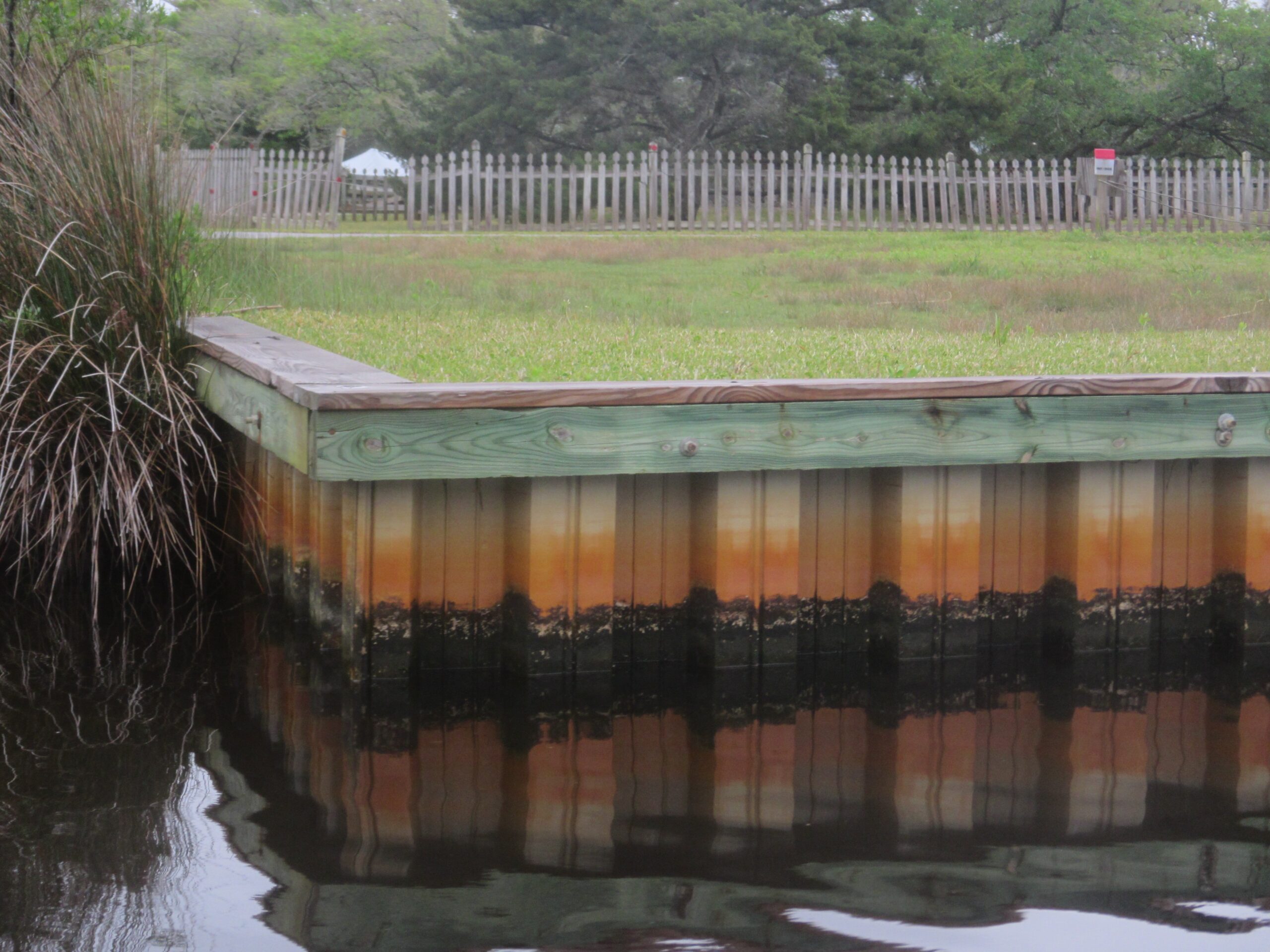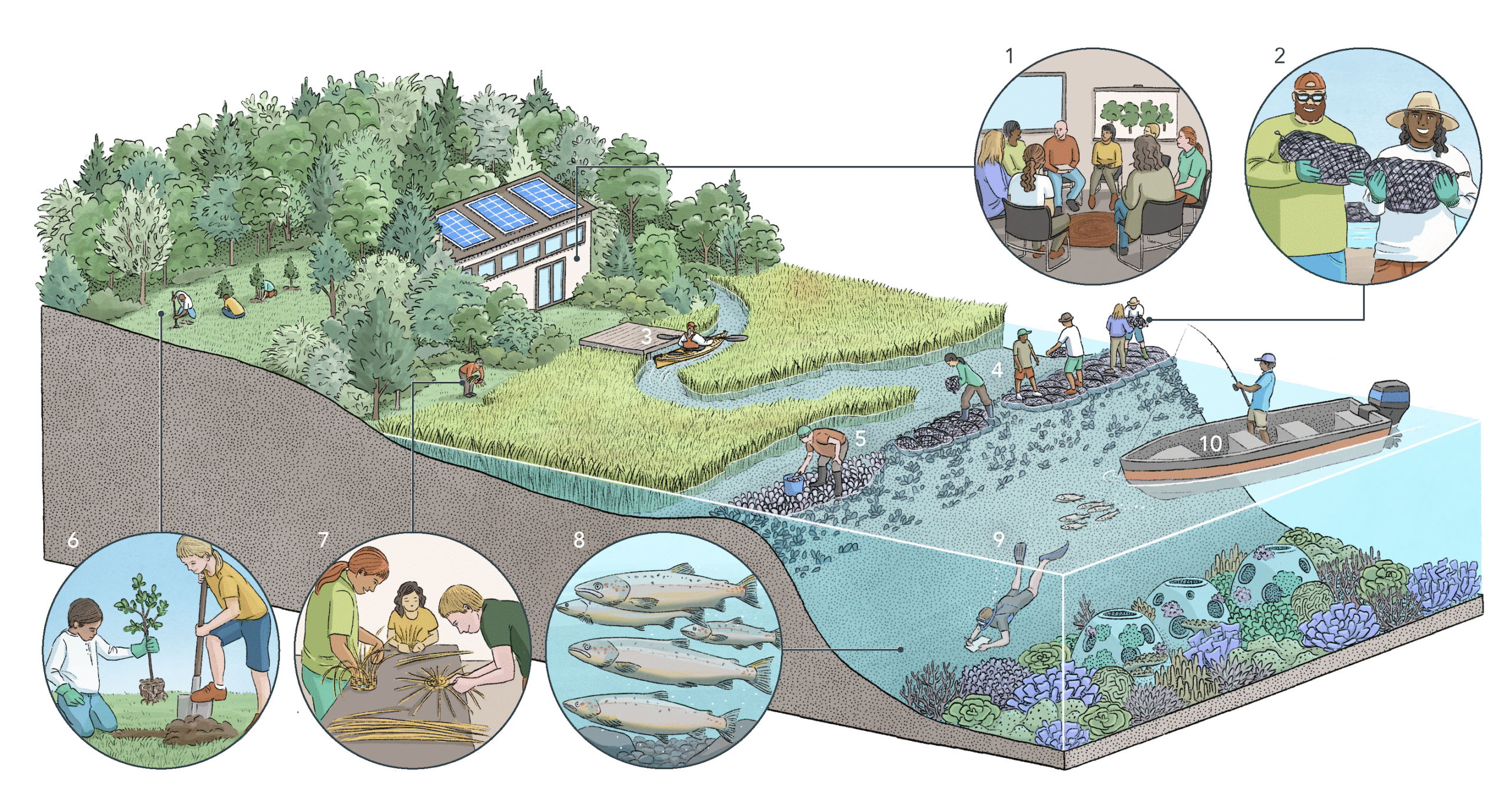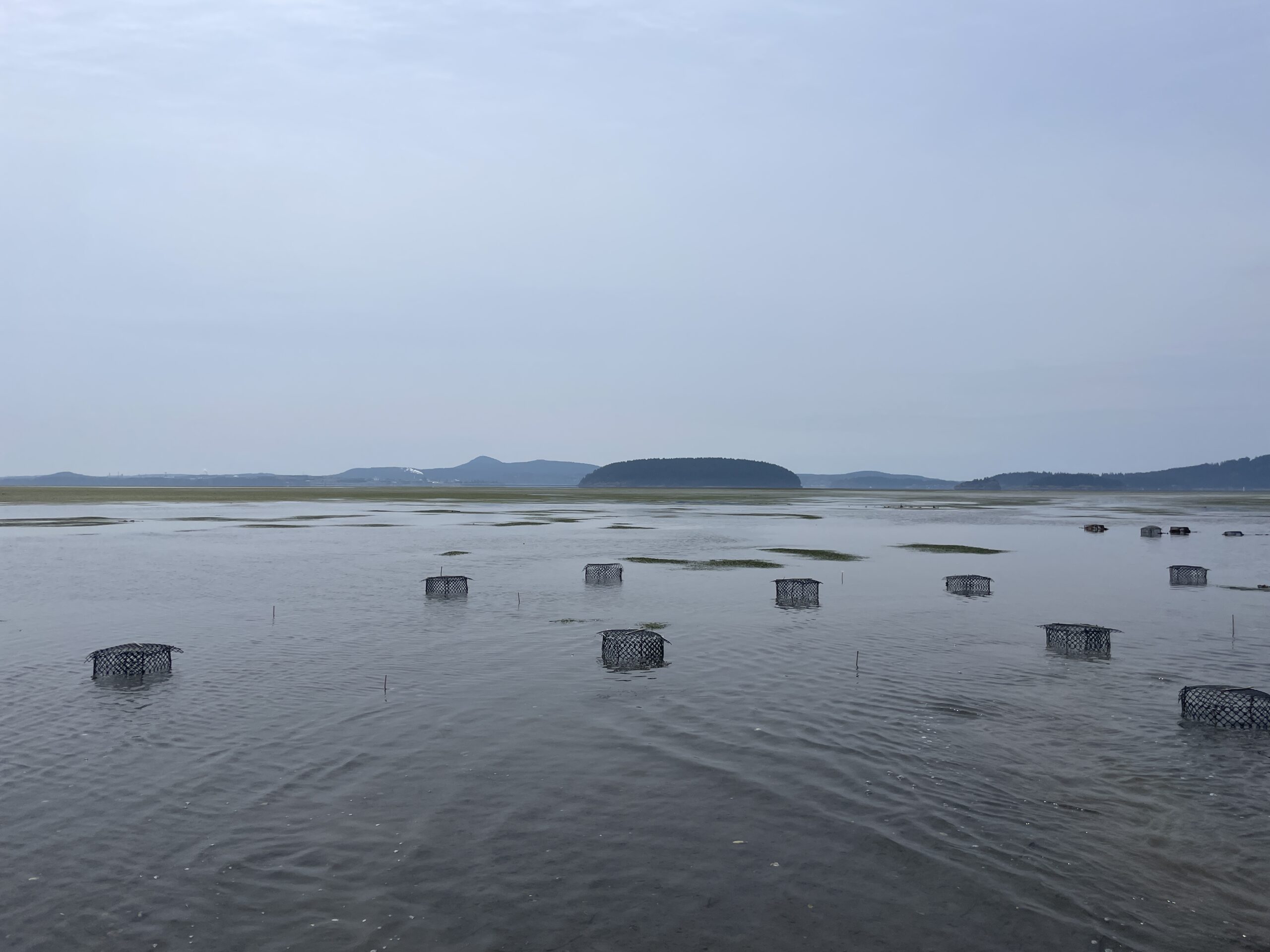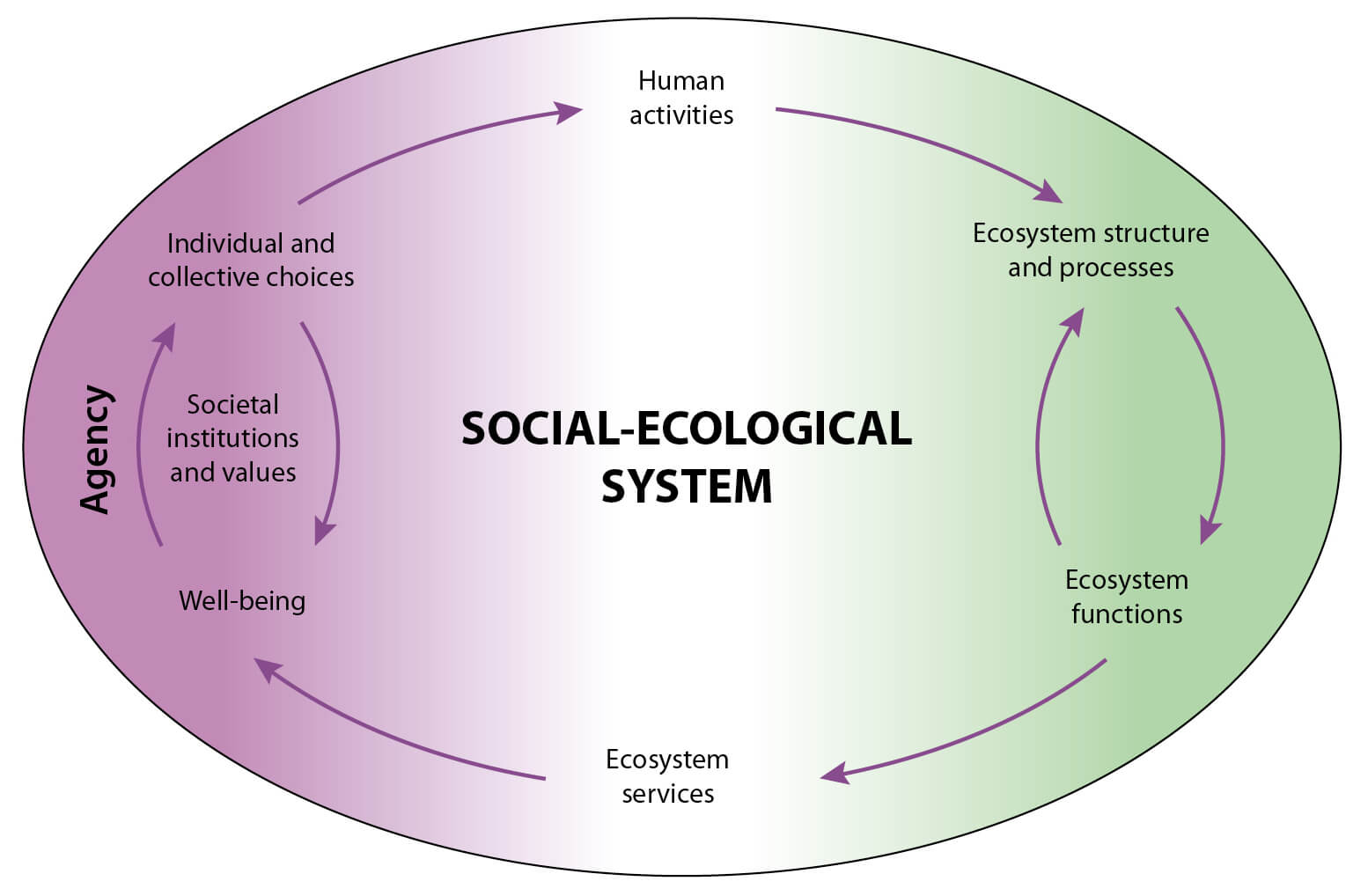Research Themes

Shoreline Development
Globally, coastal development is a major driver of habitat and biodiversity loss. Our research focuses on understanding the effects of different shoreline erosion protection strategies on coastal habitat extent, biodiversity, and ecosystem functioning. Our research shows that seawalls support lower biodiversity and lower abundance than natural reference shorelines , whereas natural- and nature-based infrastructure alternatives to hardened shorelines can have myriad ecological benefits. (Gittman et al. 2016 Bioscience, Smith et al. 2018 Ecological Application, Smith et al. 2021 Frontiers in Marine Science, Smith et al. 2021 Ecological Engineering, Smith et al. 2024 Estuaries and Coasts)

Ecological Restoration
Restoration ecology is a discipline that provides the theorical underpinnings for ecological restoration, but restoration in practice is more often based on system specific knowledge rather than theory. However, incorporating and testing ecological and social theories in restoration can enhance outcomes. Our lab uses interdisciplinary theory to advance the field to restoration. In particular, we are interested in understanding how positive species interactions and community engagement can enhance restoration practice. (Zhang et al. 2018 Sustainability, Abelson et al. 2020 Frontiers in Marine Science, Silliman et al. 2024 Current Biology, Smith et al. 2025 Wetlands Ecology and Management, Smith et al. 2025 PNAS)

Trophic Interactions
Negative species interactions (i.e., consumption) can work synergistically with global change to cause ecosystem collapse, but positive species interactions (i.e., facilitation via stress amelioration) can have the opposite effect and bolster ecosystem resilience. Our research focuses on testing how species interactions (both positive and negative) at a local scale can impact resilience to disturbances operating at a global scale (e.g., intensifying storms, drought, heat waves, overfishing). (Donaher et al. 2018 Ecosphere, Xu et al. 2023 Science, Smith et al. 2024 Ecology)

Social-ecological Systems
Coastal areas are very tightly coupled social-ecological systems and its impossible to fully understand the ecology of a system without understand how ecosystems are impacted by humans and reciprocally how ecosystems impact humans. Our lab collaborates with social scientists and environmental psychologists to better understand coastal development decision making and social-ecological resilience. (Smith et al. 2017 Marine Policy, Smith and Scyphers 2019 Environmental Science and Policy, Gittman et al. 2020 Conservation Biology, Smith et al. 2025 PNAS)